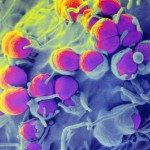Link to Pubmed [PMID] – 21538349
Eur. J. Immunol. 2011 Aug;41(8):2303-13
TLR agonists have been suggested to directly impact Tregs, thereby enhancing or reversing their suppressive function. Here, in order to select TLR agonists leading to potent effector T-cell responses, while minimizing Treg inhibitory function, we used a model antigen, covalently linked to an inert delivery system, combined with a large panel of TLR agonists, for the immunization of mice with an attenuated/depleted or intact Treg subset. We observed that the negative modulation of effector CD4(+) T cells exerted by Tregs cannot be circumvented, whatever the TLR agonist used as adjuvant. To better understand the impact of TLR agonists on Tregs, we investigated (i) the TLR expression profile of highly purified CD4(+) Foxp3(+) Tregs, at steady state or subsequent to in vivo activation by TLR agonists and (ii) the Treg phenotype after in vivo and in vitro activation by TLR agonists. Our results demonstrate that TLR agonists, as single signal inducers, are not able to directly activate Tregs. The phenotypic Treg activation observed in vivo, following TLR administration, does not result from cross-talk with conventional T cells but is rather a consequence of the interaction with other immune cell type(s).

